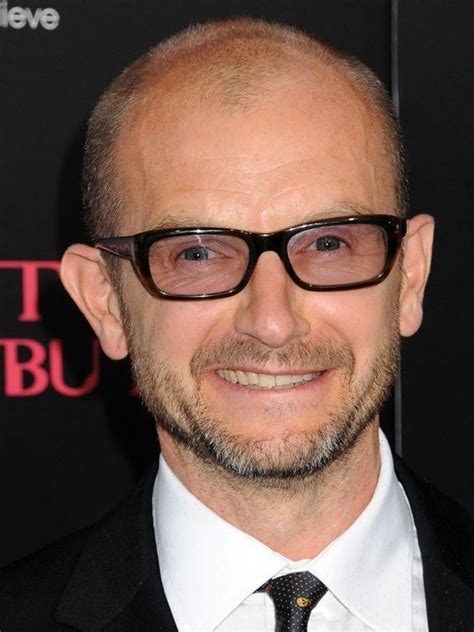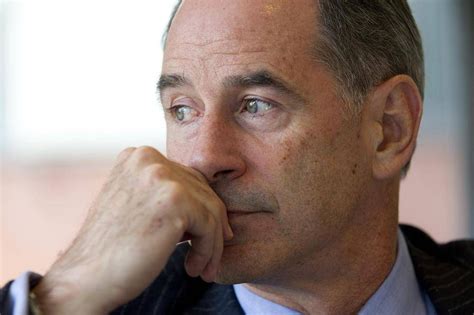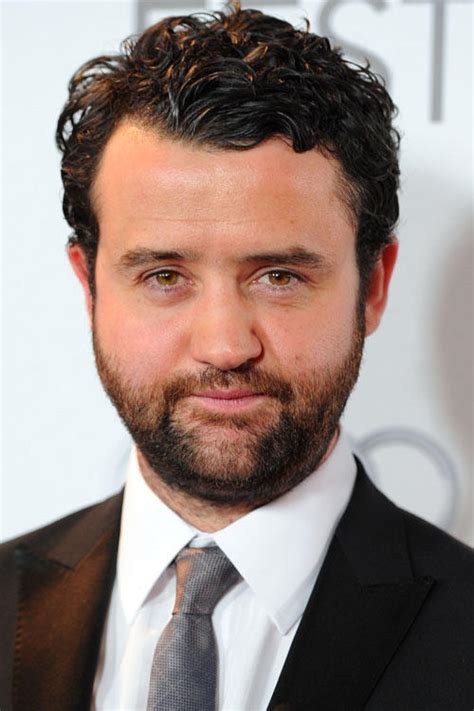A Quote by Thelma Schoonmaker
Scorsese has very defined ideas about how to shoot a scene, and he's an editor himself - we cut together. It means he's constantly thinking about my problems while he's filming.
Related Quotes
I always thought the editor should cut the film and so I'll come in and look at the movie. Just because that's the only way I can really see the ideas of the editor, it's really working together. Yes it's a hierarchy, yes I'm the boss, but I like to see and to think about the idea, and it's about us asking, 'do we have to say that?' and, 'how do we make it there?' So it's advising the editor, it's very give and take, it's very free, but in the end, it's wonderful once you get through the first couple of cuts.
I'm a writer, not an editor, and though the editing rarely cut into my writing time, it did take away from that walking-around-thinking-about-it-when-you're-not-thinking-about-it time that I think is important for writers. When you're half-thinking about what you're working on while driving, cooking . . . just letting things sift and settle, come to you.
I don't believe in doing thousands of cuts, then giving it to the editor to make the movie. 'Dump-truck directing' is my reference to that style of moviemaking. You have to know how to cut before you can shoot well. The lack of definition in movies today is appalling. Very few people know how to mount a narrative anymore. If a scene works in one cut, you don't need 10. Or it might need 10. Let's not make it 20.
In order to have a hope of creating better answers, we need to deeply understand the logic of the opposing answers. That means thinking about how we think about both models - not just do we like one versus the other. Rather we have to ask: How do I think each model produces the results that it does? Metacognition, thinking about thinking, builds up our capacity to do that and to play with opposing ideas - and new models - in real time.
The problems in the world today are not political problems, they are not economic problems, and they are not military problems. The problems in the world today are spiritual problems. They have to do with what people believe. They have to do with our most fervently held thoughts and ideas about Life, about God, and most of all, about ourselves, and our very reason for living.
The landscape is a reflection of the inner life. Since I can't shoot the inner life, all I can shoot is the exterior but I know that when I'm filming outside, I'm filming inside. I can only really touch the inside through the mise-en-scene. So through the mise-en-scene of the outside we can explore the inside
Everything is important, but there is a weight to these big or expected things and then there is the logistics of them and it's trying to find, while you worry about for instance the ballroom scene, how do you get 500 people to go to the loo in corsets and don't cost you an hour and how do you remember while you're organizing all that to take a breath and say, 'Well the scene is about all of that and it's about Prince hand on the small of Cinderella back as well' and we need time to do that properly as well.
Every Man being conscious to himself, That he thinks, and that which his Mind is employ'd about whilst thinking, being the Ideas, that are there, 'tis past doubt, that Men have in their Minds several Ideas, such as are those expressed by the words, Whiteness, Hardness, Sweetness, Thinking, Motion, Man, Elephant, Army, Drunkenness, and others: It is in the first place then to be inquired, How he comes by them? I know it is a received Doctrine, That Men have native Ideas, and original Characters stamped upon their Minds, in their very first Being.
What I don't like about teaching is hearing myself say the same thing. I mean, you just want to sort of shoot yourself after a while. But you don't have a million different ways of thinking about what you have been thinking about for many years. And then there's the truism that you're only as good as your students. If they're not into what's going on, it doesn't matter who you are.
I tend to learn things physically - I guess it's my dance training. I never want to make too many choices too soon - so, while I am thinking about the character and thinking about her history, which is very vague in terms of what is given in the text, I am starting to have ideas about what her home is.
have a much harder time writing stories than novels. I need the expansiveness of a novel and the propulsive energy it provides. When I think about scene - and when I teach scene writing - I'm thinking about questions. What questions are raised by a scene? What questions are answered? What questions persist from scene to scene to scene?



































